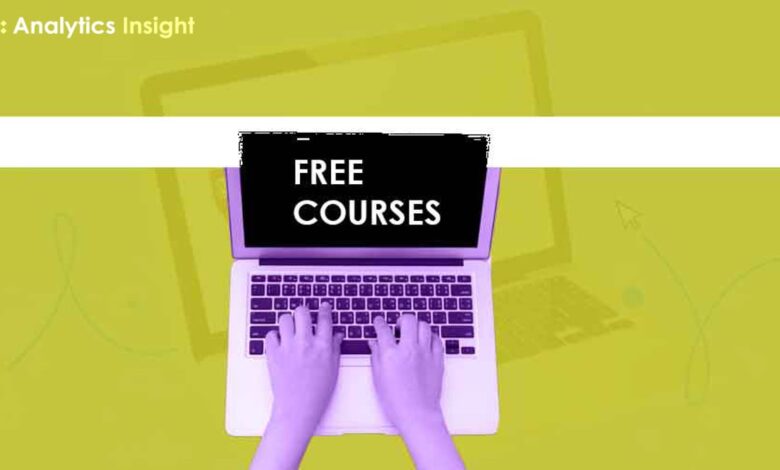Harvard’s Free Data Science Courses

The job market is constantly changing, and nothing is more necessary in the contemporary world than being at least one step ahead. In the recent past, data science has emerged as a crucial skill, given that more industries are now using data for decision-making and differentiation purposes. That is why Harvard University provides an incredible chance for every professional and student to future-proof their careers with free online data science courses.
Harvard’s data science course offerings offered through edX and other platforms span the basic, such as data analysis and visualization, to the more complex, like machine learning. These courses are delivered by instructors from the Harvard faculty, which allows learners to enjoy sound education that is both theoretical and practical.
The flexibility of online learning offers participants a wide range of benefits, including the ability to learn at their own pace, apply newly acquired skills at work, or progress to a new level of career advancement. The courses are designed to accommodate learners with no prior experience in the field as well as learners who seek to advance their knowledge in the same field.
It is possible to conclude that free data science courses offered by Harvard University will help people obtain competitive benefits in the labor market, develop critical thinking skills, and adapt to the new world where data is a key factor. This initiative not only popularizes education but also helps to control the future through digitalization or learning.
Benefits of Free Courses for aspiring data scientists:
Cost-Effectiveness: Free courses allow you to explore the data science area and determine if it corresponds with your interests before committing to more expensive programs.
Flexibility: You may learn at your own speed and adapt the program to fit your present schedule.
Firm Foundation: Before delving into specific areas, ensure that you have a firm knowledge of essential principles.
Trustworthy Source: Benefit from the knowledge and reputation of a world-renowned institution such as Harvard.
Below are some of the free data science courses from Havard University.
Programming
When aspiring to learn data science, you should start by learning how to code. Can you achieve this using your preferred programming language? Ideally, Python or R.
If you want to learn R, Harvard offers an introductory course called Data Science: R Basics, designed exclusively for data science students.
This application will teach you about R fundamentals such as variables, data types, vector arithmetic, and indexing. You will also learn how to manipulate data using tools such as dplyr and construct charts to visualize it.
If you prefer Python, you can take CS50’s Introduction to Programming with Python, which is accessible at Harvard. This course will cover concepts such as functions, arguments, variables, data types, conditional expressions, loops, objects, methods, and more.
Both programs listed above are self-paced. However, the Python course is more detailed than the R program and takes longer to finish. Furthermore, the other courses on this roadmap are taught in R, so learning R may be worthwhile if you want to follow along.
Course link for Data Science: R Basics
Course link for CS50’s Introduction to Programming with Python
Data Visualization
Visualization is one of the most effective strategies for communicating your data results to others.
Harvard’s Data Visualization program will teach you how to create graphics using the ggplot2 tool in R and how to present data-driven insights.
Course link for Harvard’s Data Visualization program
Probability
This Data science Probability course will teach you the fundamentals of probability, which are required for running statistical tests on data. The course covers random variables, independence, Monte Carlo simulations, expected values, standard errors, and the Central Limit Theorem.
The principles discussed above will be taught through a case study, allowing you to apply what you’ve learned to a real-world dataset.
Course link: Data Science Probability
Statistics
After mastering probability, you can enroll in this Data Science: Inference and Modeling course to learn the principles of statistical inference and modeling.
This class will teach you how to define population estimates and margins of error, as well as the principles of Bayesian statistics and predictive modeling.
Course link: Data Science: Inference and Modeling
Productivity Tools
This project management course is listed as optional since it is not directly relevant to studying data science. Rather, you’ll learn how to utilize Unix/Linux for file management, Github, version control, and R report creation.
The ability to perform the aforementioned will save you a significant amount of time and allow you to manage end-to-end data science initiatives effectively.
Course link: Data Science: Productivity Tools
Data Pre-Processing
The next course on this list, Data Wrangling, will teach you how to prepare data and format it so that machine learning models can understand it.
You will learn how to import data into R, clean it, analyze string data, parse HTML, and interact with date/time objects.
As a data scientist, you frequently need to extract data that is publicly available on the Internet, such as a PDF document, HTML webpage, or Tweet. CSV files and Excel sheets may not always include clean, structured data.
By the end of this course, you will have learned how to wrangle and clean data in order to extract key insights.
Course link: Data Science: Wrangling
Linear Regression
Linear regression is a machine learning approach that represents a linear connection between two or more variables. It may also be used to detect and control the impact of confounding factors.
This course will teach you the theory of linear regression models, how to investigate the relationship between two variables, and how to find and eliminate confounding variables before developing a machine learning algorithm.
Course link: Data Science: Linear Regression
Machine Learning
Finally, the course you’ve undoubtedly been hoping for! Harvard’s machine learning program will teach you the principles of machine learning, strategies to avoid recommendation systems, overfitting, and supervised and unsupervised modeling approaches.
Course link: Data Science: Machine Learning
Capstone Project
After completing all of the courses above, you can participate in Harvard’s data science capstone project, which will evaluate your skills in data visualization, probability, statistics, data wrangling, data organization, regression, and machine learning.
This final project will allow you to use all you’ve learned in the preceding courses and create a hands-on data science project from scratch.
Course link: HarvardX: Data Science: Capstone
Conclusion:
Embracing these educational tools not only improves one’s career possibilities but also promotes a culture of continual learning and adaptability. As businesses develop and the need for data-savvy workers rises, enrolling in Harvard’s free data science courses may be a smart move toward long-term job success and personal improvement.
FAQs
Can I receive a Harvard certificate for free?
On Harvard OCW, CS50 comes with a free certificate of completion. The course content and assignments are identical to those found on edX. The main difference is that the free certificate does not require ID verification.
Is Harvard pricey for Indian students?
Harvard University’s MBA program offers varying tuition prices. The total cost for the academic year 2022-2023 is US$112,764. Harvard Business School offers various financial assistance programs to Indian students.
Is Data Science Course Difficult to Learn?
Data Science is a broad discipline, and learning all of the foundations might be intimidating at first. However, with hard effort, attention, and a solid learning roadmap, you will understand that it is simply another area and not difficult to gain the abilities necessary to enter Data Science.
Can I receive a full scholarship to Harvard from India?
Harvard University offers scholarships to Indian students at the undergraduate, graduate, and doctorate levels. The institution has established a special general scholarship committee to oversee the distribution of financial help to students in need.



